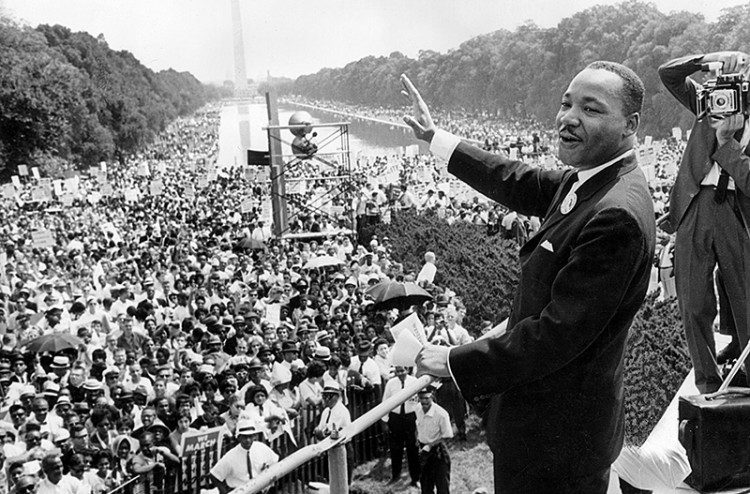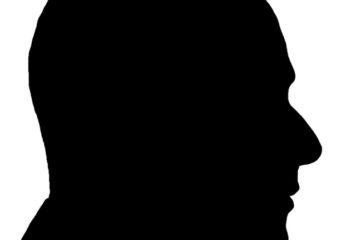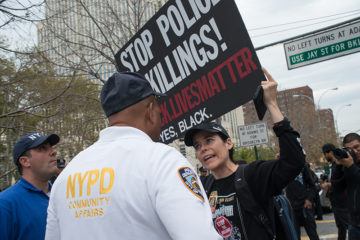Dr. King’s Dream Wakes Up (At Least a Little Bit)

On August 28th, 1963 Dr. Martin Luther King Jr. stood in front of an endless sea of black Americans and white Americans and gave these words to the longings of every soul who had gone to incredible lengths to stand with him on that hot summer day:
And so even though we face the difficulties of today and tomorrow, I still have a dream. It is a dream deeply rooted in the American dream.
I have a dream that one day this nation will rise up and live out the true meaning of its creed: “We hold these truths to be self-evident, that all men are created equal.”
I have a dream that one day on the red hills of Georgia, the sons of former slaves and the sons of former slave owners will be able to sit down together at the table of brotherhood.
I have a dream that one day even the state of Mississippi, a state sweltering with the heat of injustice, sweltering with the heat of oppression, will be transformed into an oasis of freedom and justice.
I have a dream that my four little children will one day live in a nation where they will not be judged by the color of their skin but by the content of their character.
If you have time to read or listen to the entire speech, it will be well worth your time. It is a powerful reminder of the best of what it means to be an American and a human being.
Dr. King, along with so many others dreamed of an American society that didn’t believe human beings come color coded based on character, virtue, competence, inherent worth, or anything else.
There are few places that I have seen this dream come true more than in the life of my son Oliver. Oliver is in kindergarten at an almost all black school and almost all of his friends are black (or some shade of brown). These are the kids he plays tag with, wrestles with, and play-fights with. Unlike a lot of adults, he doesn’t think a thing of it. Until very recently he was completely oblivious to the ideas that he is “white” and his friends are “black.” To him these kids, their parents, and his teachers are just people, just his friends – known by their names, their personalities, and how they get along with others.
I see the dream of millions, the dream of what the world could be like, come true in my sons kindergarten class and their relationships with each other.
And then the dream began to wake up – at least a little bit.
I began to notice it during Black History Month (February). While I am proud and grateful for my white, American, European heritage and history and the incredible gifts it has brought to the world, I think Black History Month is important. It is important because history is important. It is important because millions of black kids need to know of strong and virtuous heroes from their own history and heritage – heroes they can easily identify with. Black History Month is also important because the rest of our society needs to know about the black men and women who gave their energy, their intelligence, and even their lives to make our world a better place – not just for black people, but for all of us.
Black History Month is important, but it isn’t without its challenges. It was during Black History Month that I first heard my previously color blind six-year-old son use the term “black people” or reference any tension between the two “groups.” Before this, for Oliver, there were no color coded groups. He didn’t know that there were “black” people and “white” people. He just knew there are people and some people have brownish skin and some people have pinkish skin. Black History Month introduced the concept of race and racial tension to kids that based on their own experiences of the world didn’t know these things existed. I recognize that some kids in our society have experienced racial tensions and racial divides before they turned six, but I think Dr. King’s dream and the dream of millions of others had come true in this little group and in a small way it began to wake up this February.
The small loss of this innocence stings a little bit.
I also wonder if certain aspects of history are appropriate for all ages. I wonder if the use of certain media to teach history is appropriate for all ages. For example, reading or telling six year olds the story of Ruby Bridges – the courageous six year old girl who was the first black child to attend a white Southern elementary school could be great idea if it was told well and in an age appropriate way. Showing a video documentary of Ruby Bridges might not be. Little Ruby and her family were threatened before she went to school and she was surrounded by angry, violent mobs on her way into school. This is intense, scary, emotional content that I don’t think kindergartners know what to do with.
I have heard from a number of elementary school teachers that say they’ve noticed kids get meaner to each other during February. I can’t help but think that introducing these types of scenes, scenes of meanness and hate that they are ill equipped to process, into their little worlds is somehow related.
For these very young kids, I think some of these films also run the risk of emotionally importing a concept that Dr. King and so many others worked so hard to put an end to – that human beings aren’t color coded. “White” people are not bad and scary, just like “black” people are not bad and scary. You can’t determine the content of someone’s character by the color of their skin – something any kindergartner would know.
Often a better world can be pursued by looking at history and it should be, but maybe sometimes we need to take a closer look at Kindergarten, those living the dream, and learn from them.



No Comment